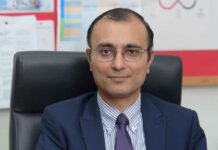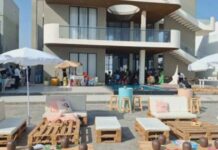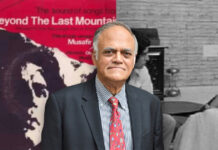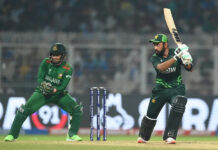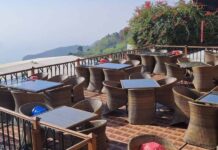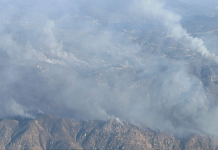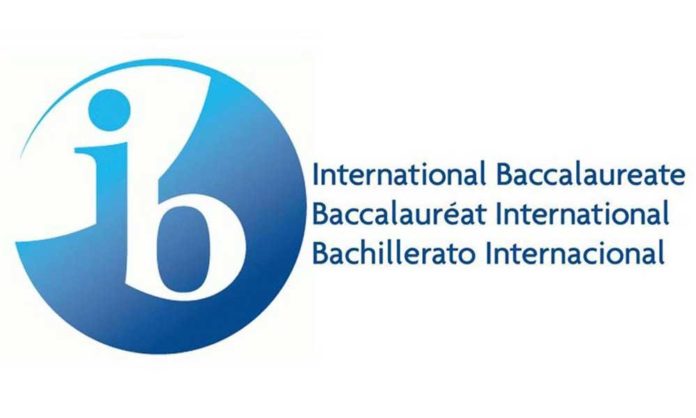Pakistan is considered to be the fifth largest country in the world in terms of youth population. Around 63 percent population comprises of youth aged between 15 – 33 years, with a median age of 23.8 years. This youth bulge can be a powerful engine of economic growth and development if the country manages to modernize and expand its education system, raise educational attainment levels, and provide skills to its youth.
Since decades two parallel systems of education — Matric/Intermediate and Cambridge — have produced vastly different students, who have gone on to attain success in various fields. However, changing times require a different teaching methodology.
In a digitalized global age, the country, and the world at large, requires humans who are imaginative, empathic, team players, and resilient. The most obvious implication of a world that requires learners to constantly adapt and grow is the need to build the capacity and motivation for lifelong learning. People used to learn to do the work; now learning is the work, and the post-industrial era will require coaching, mentoring, teaching, and evaluating that can build passion for learning.
Learning from a News Lens
As an alternative, the International Baccalaureate (IB) system was introduced in the country a couple of decades ago, as a way to develop knowledgeable, caring, and curious young minds to build intercultural understanding and respect.
The IB offers a continuum of international education through four challenging, high quality educational programmes to students aged 3 to 19. IB programmes are designed to develop well-rounded individuals who can respond to challenges with optimism and an open mind. An IB education also fosters diversity, curiosity and a positive attitude towards learning.
All four programmes: The Primary Years Programme (PYP), Middle Years Programme (MYP), Diploma Programme (DP) and Career-related Programme (CP) are recognized by Inter-Board Committee of Chairmen (IBCC) in Pakistan. All IB programmes move beyond examination results, aiming at the holistic development of students, empowering them to take ownership of their own learning and helping them develop future-ready skills to thrive in a fast-changing world.
The IB Educational Experience
The IB form of education focuses on more holistic teaching when compared to other educational boards. The designed curriculum provides a well-rounded education that puts focus on encouraging students in fields of critical thinking and challenging conventions. Each of the IB programmes empowers students to develop the global competencies needed to lead a successful and happy life in the 21st century. Learners are at the centre of all IB programmes, which encourage both personal and academic achievement. They provide an education that crosses disciplinary, cultural, national and geographical boundaries, and that champion critical thinking, creativity, and effective relationships. Through inquiry and collaboration, IB students take ownership of their learning journey and grow to become active, compassionate citizens of the world.
IB programmes at a glance
Each of the four IB programmes provides a detailed and developmentally appropriate curriculum or curriculum framework that is broad, balanced, conceptual and connected.
- The Primary Years Programme (PYP) is offered at 24 schools in Pakistan and is for students aged 3 to 12 and develops happy, lifelong learners who demonstrate cultural empathy and respect. Its child-centred approach builds confidence, creativity and future learning skills through six broad themes. But the most important thing a student will get from the programme is an inquiring mind and the ability to find things out for themselves.
- The Middle Years Programme (MYP) for students aged 11 to 16, prepares students to become critical and reflective thinkers by encouraging them to make valuable connections between subjects and the world around them. MYP is given equivalence to the Secondary School Certificate by Inter Board Committee of Chairmen (IBCC), Ministry of Education. The MYP is currently offered at ten schools in Pakistan. The programme has eight subjects, with an overarching curriculum framework of three different elements – approaches to learning; key and related concepts; and independent learning projects in which students are required to complete a significant piece of work over a period of time. At the end of the programme, students sit the MYP eAssessment, which is internationally-recognized and combines ePortfolios of coursework with media-rich on-screen examinations that enable creative responses, or responses that require students to manipulate data and present new understandings, using much more dynamic methods than on paper. Most recently, it was announced that Urdu was added to IB Middle Years Programme eAssessment.
- The Diploma Programme (DP) for students aged 16 to 19, is offered at 17 schools across the country and gives students world-class preparation for university and life beyond. Recognized by the IBCC and all universities in Pakistan, it is a comprehensive and challenging programme that is divided into six subject groups which are studied over two years; these groups are language and literature, language acquisition, individuals and societies, sciences, mathematics, and the arts. These subjects are in addition to three further requirements of the DP core, Theory of Knowledge (TOK), Extended Essay (EE) and Creativity, Activity and Service (CAS) which are designed to ensure students graduate ready to enter and thrive in the world’s leading universities.
- The Career-related Programme (CP) for students aged 16 to 19, helps bridge the gap between academic studies and the practical skills required in the job market. CP students undertake a minimum of two DP courses and a career-related study that supports the programme’s academic strength while providing real-world approaches to learning. It was approved by IBCC last year and is equivalent to HSSC (Humanities) in Pakistan.
Prospects of IB Education
Wondering about the sustainability of this programme? If so, then this might surprise you.
According to global research, the performance of PYP and MYP students in fields of mathematics, reading and writing tasks is considerably better than their non-IB peers.[1] While IB programmes support academic proficiency by incorporating quality practices from national, and international research including the IB global community, students have also seen to thrive in careers and entrepreneurial activities due to an education that centers around growth, innovation, creativity and thought-based; people-centric solutions.
The IB is offered by 5,500 schools in 160 countries around the world, and 31 of these schools offering 48 programmes are located in Pakistan. In addition, the IB is widely recognized by prestigious universities globally and employers alike, for the depth and breadth of its programmes.
Rules for equivalency
The common perception is that the Inter-Board Committee of Chairmen (IBCC) Equivalence Committee’s conversion formula puts IB students at a disadvantage. However, in a recent decision, IBCC has improved the conversion formula for the IB students from the May 2022 examination session onwards. Following this decision, IB students will be provided a level playing field in securing admission to medical and engineering colleges in Pakistan.
For parents and learners interested in IB, it is important to visit the IBCC website and go through the relevant subjects required by the body for the learner to receive an equivalency in Pre-Medical Group, Pre-Engineering Group, General Science Group and Humanities group.



